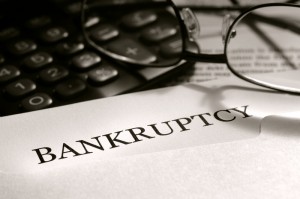 Chapter 13 bankruptcies are funded through future income of the debtor. Debtors makes payments to a trustee each month for thirty-six to sixty months, and the trustee takes that money and pays it to the creditors provided for in the plan. Secured creditors to be paid through the plan and priority creditors get paid in full. However, unsecured creditors are only paid if the debtor has disposable income which can be dedicated to the unsecured creditors.
Chapter 13 bankruptcies are funded through future income of the debtor. Debtors makes payments to a trustee each month for thirty-six to sixty months, and the trustee takes that money and pays it to the creditors provided for in the plan. Secured creditors to be paid through the plan and priority creditors get paid in full. However, unsecured creditors are only paid if the debtor has disposable income which can be dedicated to the unsecured creditors.
Disposable income is calculated using a means test. The means test subtracts standard IRS deductions from the debtor’s average income in order to determine if the debtor has disposable income. Disposable income must be paid to the unsecured creditors provided for in the plan. When a debtor’s income increases then their plan payment may increase as well. Similarly, when a debtor receives bonus income, they may have to turn it over to the trustee.
When a debtor in a bankruptcy case gets a bonus, there are several factors that affect whether or not the debtor will get to keep the income. First, was the bonus income already accounted for in the means test? If the debtor’s bonus income was already accounted for in the means test then receiving the bonus income does not increase the debtor’s disposable income. To take the money would be to count it twice.
Second, is the confirmed plan already paying 100% of the unsecured creditors? If the plan is already providing payment to 100% of the unsecured creditors then the trustee may determine that there is no reason to require the debtor to turn over the bonus income since it is not needed to pay all creditors provided for in the plan. This argument sometimes works but some trustees will still argue that the money should be turned over. Their argument is that by not turning over the money the debtor is shifting the risk that the debtor will lose his job before the end of the plan to the unsecured creditors. If the debtor loses his job then the plan will most likely not be completed, and the bonus income that would have gone to these creditors is lost because the case fails.
Third, does the debtor have unusual, necessary expenses that warrant the debtor being allowed to keep the money? For example, if the debtor’s air conditioner at home quits working, or their foundation needs to be repaired, or their car breaks down and they need the vehicle to get to work, then the debtor’s attorney may ask the court to allow the debtor to keep the bonus income.